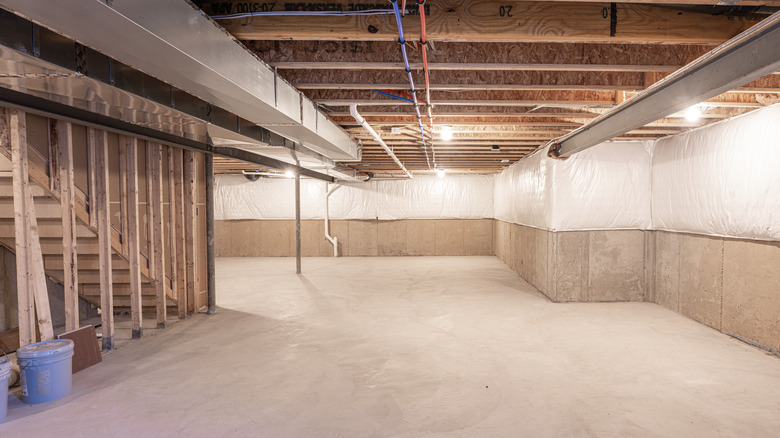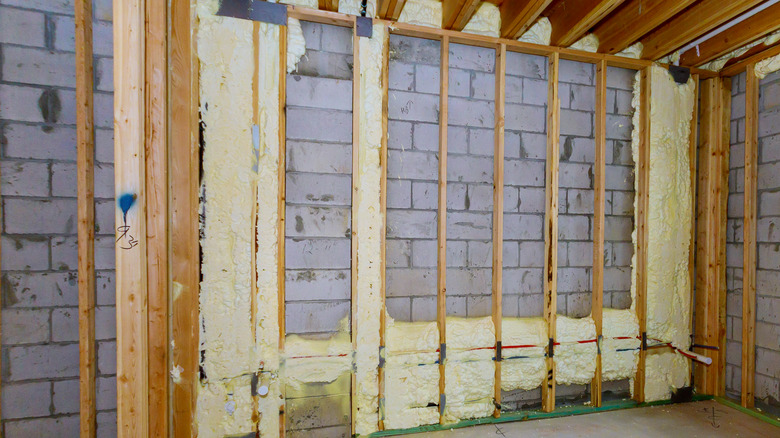Why It's Absolutely Essential To Insulate Your Basement
As you step into the basement, you realize just how much colder this area of your home is than the upper floors. Even with the furnace on, it can seem like it's impossible to get the basement to heat up enough during the winter to make it comfortable. Touch the walls and floor. Do they feel cold? Do you feel drafts blowing from one area of the basement to the other even though the windows are closed? These are signs your basement may be lacking insulation.
If you plan to remodel this space, especially if you're doing drywall work, it may be a good time to add insulation to the basement. That's especially important if you plan to finish the basement to make it a comfortable, usable space. Otherwise, you may be tempted to turn up the furnace on cold days and watch your home's energy bills rise as you do. If you don't plan to remodel this space, consider alternatives for behind-the-wall insulation, such as insulated foam boards, which can be a quick fix to offer some help. Other times, more extensive work is beneficial.
Insulation prevents heat transfer
Adding insulation to your home can offer a wide range of benefits, including creating a barrier that limits heat transfer, the process of heat moving out of the interior structure into outside through the exterior surfaces. This can happen through the walls, ceiling, and the foundation itself. Once you add proper insulation to the space, though, you've created a better seal on the interior of your home, meaning less cold air can penetrate into the home, and less heated air can leave. This can also help with humidity control and maintaining an even, cool temperature in the summer.
Insulation makes your home's basement comfortable, and that means there's less need for you to increase your thermostat to make the basement a space you want to spend time in during colder days. That's also going to help make your home's heating and cooling bills a bit easier to manage. That applies to insulating any area of your home from the attic down.
It may be a code requirement, too
Another essential reason you should insulate the basement may be to avoid costly fines for violating local building codes. Be sure to check with local building inspectors to find out if this impacts you. That doesn't mean you have to rip out your walls now, though. If you're remodeling, especially if you need a permit for plumbing, structural changes, or electricity, you may need to add insulation during the process to bring your home up to code. Many cities now require any type of finished basement to have insulation added around the exterior walls.
While not all forms of insulation are waterproof, some products are or you can add waterproofing systems alongside the insulation. That means using them could help keep the moisture out of your interior spaces as well. Failing to do this could mean your home will not pass an inspection if you need a permit from the city. It may also impact the home's value later, should you decide to sell the home. Whether you need to replace your home's insulation or add more to it, this is a project you don't want to put off.


